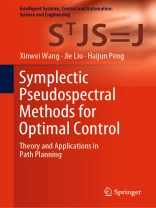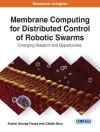The book focuses on symplectic pseudospectral methods for nonlinear optimal control problems and their applications. Both the fundamental principles and engineering practice are addressed. Symplectic pseudospectral methods for nonlinear optimal control problems with complicated factors (i.e., inequality constraints, state-delay, unspecific terminal time, etc.) are solved under the framework of indirect methods. The methods developed here offer a high degree of computational efficiency and accuracy when compared with popular direct pseudospectral methods. The methods are applied to solve optimal control problems arising in various engineering fields, particularly in path planning problems for autonomous vehicles. Given its scope, the book will benefit researchers, engineers and graduate students in the fields of automatic control, path planning, ordinary differential equations, etc.
สารบัญ
Background.- Numerical methods for computational optimal control.- Mathematical foundations.- SPM for general nonlinear unconstrained optimal control problems.- SPM for nonlinear optimal control problems with inequality constraints.- SPM for nonlinear state-delayed optimal control problems.- From open-loop to closed-loop: Model predictive control.- Optimal maneuver of spacecraft.- Optimal path planning of UGS.- Overhead crane.- Carrier aircraft (traction system).- Optimal vaccination strategy for a seasonally varying epidemic model.
เกี่ยวกับผู้แต่ง
Xinwei Wang was born in Dalian, China. He received the Ph.D. degree in computational mechanics from Dalian University of Technology, Dalian, China, in 2019. He is currently a Postdoc with the Department of Engineering Mechanics and Faculty of Electronic Information and Electrical Engineering, Dalian University of Technology, Dalian, China. His research interests cover computational optimal control and path planning for autonomous vehicles. He has authored or co-authored over 10 publications in journals.
Jie Liu was born in Huanggang, China. He received the Ph.D. degree in aerospace science and technology from Naval Aeronautical University, Yantai, China, in 2019. He is currently working in Academy of Military Sciences, Beijing, China. His research interests cover the control of Unmanned Ground Systems, path planning for robots, and optimal control, as well as related fields such as the process industry control and automation. He has authored or co-authoredover 10 publications in journals.
Haijun Peng was born in Handan, China. He received the Ph.D. degree in dynamics and control from Dalian University of Technology, Dalian, China, in 2012. He is currently a Professor with the Department of Engineering Mechanics, and fixed personnel in State Key Laboratory of Structural Analysis for Industrial Equipment, Dalian University of Technology, Dalian, China. His research interests cover the optimal control, multibody dynamics, and robot system. He has authored or co-authored over 50 publications in journals, and received one best paper award.












